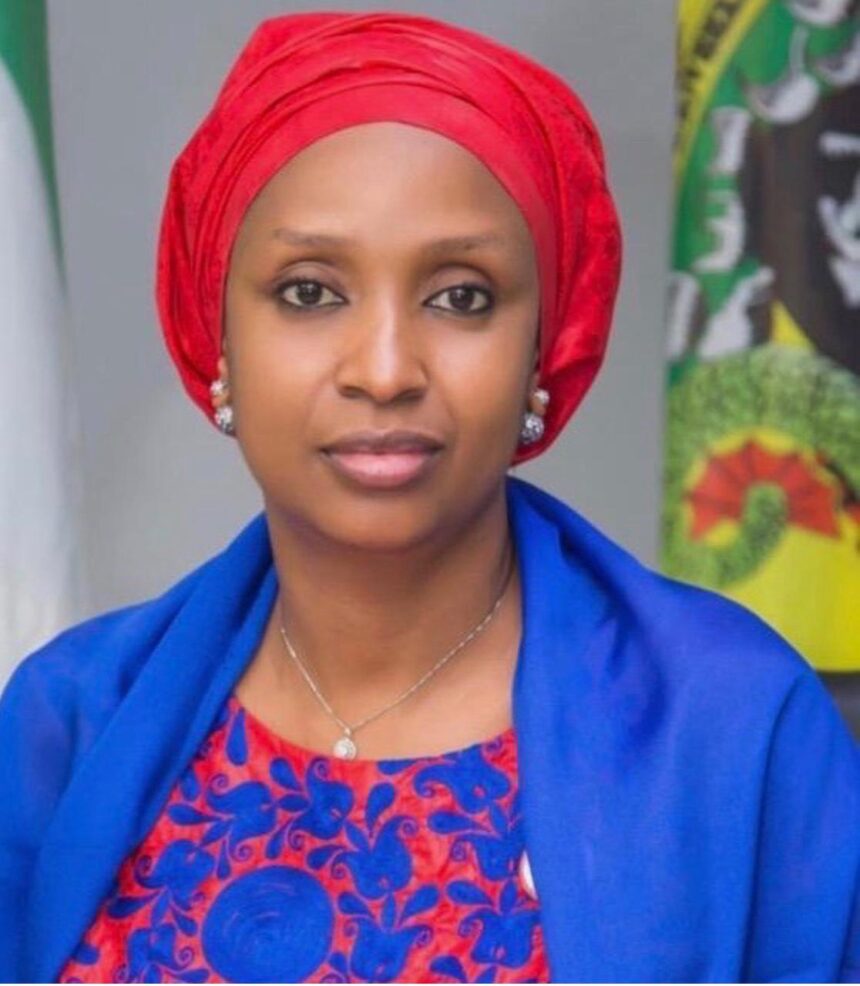●The Right of Reply That Restores the Record: Reminding Power Where It Ends
●BUA’s Battle Wasn’t Just About a Port, It Was About the Soul of the System
●Abdulsamad Rabiu’s Facts Outlive the Fiction That Tried to Shame Him
●Buhari Saw Through It, the Courts Rejected It, and History Is Still Watching
There is a line between authority and autocracy, between governance and vendetta. Hadiza Bala Usman, once ensconced in the prestige of her office as Managing Director of the Nigerian Ports Authority (NPA), crossed that line with the quiet arrogance of unchecked power. Now, as she returns from political obscurity to peddle revisionist tales, BUA Group has drawn its line in return, with truth, contract, and unimpeachable fact.
This is no routine rebuttal. This is a public service. When Usman accused BUA Group and its chairman, the eminent industrialist Abdulsamad Rabiu, of breaching a concession agreement at the Port Harcourt terminal, she did more than distort the facts. She insulted the spirit of lawful enterprise. She mocked due process. She trivialised the dignity of her former office.
But BUA has responded with clarity, instead of anger. And not for vanity, but for posterity.
The Contract She Chose to Forget
In 2006, years before Hadiza Bala Usman ever walked the corridors of maritime power, BUA entered into a valid lease agreement with the NPA for Terminal B of the Rivers Port. The mandate was clear: rehabilitate, operate, and expand the terminal infrastructure.
By the time Usman assumed office in 2016, BUA had already begun discussions with the NPA to address remedial works, as the port’s original state was riddled with derelict iron ore remnants, structural deficiencies, and unsafe berths—all legacies of public neglect. These talks were nearing conclusion.
Instead of progressing those talks, she chose disruption. Rather than follow the contract’s dispute resolution mechanism, she wielded authority like a cudgel, summarily terminating BUA’s rights, decommissioning berths, and shutting down the terminal without consultation, without lawful authority, and in contempt of a standing court injunction.
By every measure of law and logic, Hadiza Bala Usman’s actions at the helm of NPA were an affront to good governance. Her decision to terminate BUA’s concession did not follow process. It was not supported by arbitration. It flouted the courts. And it trampled upon Article 17.3 of the concession agreement, which mandates exclusive resolution through arbitration.
No provision in the contract authorised her to decommission the terminal. She has yet to cite a clause. She never will. Because there isn’t one. Worse, after BUA provided indemnities and guarantees, the company was briefly permitted to resume operations, only for Usman to reverse course within three weeks and shut the terminal again, unilaterally. If this was not hostility laced with personal vendetta, then what was it?
The President Saw Through It and Acted
When Abdulsamad Rabiu, ever composed and dignified, sought an audience with then-President Muhammadu Buhari, he did not ask for favours. He brought facts. Contracts. Correspondence. Court rulings.
President Buhari, a man not known for sentiment, responded with presidential decisiveness. He directed the Attorney General of the Federation (AGF) to investigate.
The AGF invited all parties: BUA, NPA, and Ms. Usman herself. BUA showed up. She did not. The review still went ahead. And the verdict was unambiguous: Usman’s termination was unlawful. The decommissioning was without basis. The NPA under her had breached its obligations, and BUA’s rights should be reinstated.
The result? President Buhari reversed her decisions. He preserved 4,000 jobs. He saved a $500 million investment cluster in Port Harcourt. He preserved Nigeria’s credibility before its own laws. That is the truth. And Hadiza Bala Usman cannot wish it away.
Hadiza now claims President Buhari was “misinformed.” The audacity is staggering. Here is a former head of a national agency, repudiated by her principal, whose decisions were overturned based on the advice of the nation’s top legal officer—now implying that both men lacked understanding.
It is an insult, not just to Buhari, but to the office of the President.
If Hadiza Bala Usman truly believed she acted lawfully, BUA challenges her to show Nigerians the exact clause that permitted her unilateral decommissioning. Let her cite chapter and verse. Let her test her righteousness against the written word. Otherwise, the record must stand: she acted in abuse of power. She governed with impunity. And she endangered one of Nigeria’s most strategic private sector investments.
After Hadiza, Order Was Restored
Following her removal, the air around the NPA cleared. Due process returned. Under the new leadership, BUA was granted formal approval to resume reconstruction at Terminal B in 2022. No subsidy. No bailout. Over $65 million invested, entirely private.
The contract was awarded to global engineering firm TREVI. Completion is now expected in Q1 2026. Jobs are being restored. Confidence is returning.
This is what governance looks like when ego steps aside. Had Hadiza Bala Usman’s recklessness been allowed to stand, the message to the world would have been catastrophic: that contracts in Nigeria are irrelevant, that court orders are optional, and that investment is hostage to mood swings in public office.
She nearly sabotaged Nigeria’s credibility. She nearly damaged the rule of law. And she nearly cost the economy thousands of jobs and hundreds of millions in private capital.
Rabiu did not just defend his business. He defended the principle of lawful engagement. He stood firm for every entrepreneur who dares to dream in a system often riddled with systemic sabotage.
Through it all, Abdulsamad Rabiu maintained his quiet nobility. Even his recent article, “Two Years of President Tinubu: A Business Perspective,” did not name names. He merely alluded to a former era where impunity was rife, and where business leaders lived in fear of arbitrary disruption. The guilty named themselves.
His endorsement of President Bola Ahmed Tinubu’s ongoing reforms—fuel subsidy removal, forex unification, and policy stability—has clearly rattled those nostalgic for the old Nigeria. A Nigeria where power was used to punish, not to protect.
And that, perhaps, is why Hadiza speaks now. Hadiza Bala Usman today serves under President Tinubu’s administration. Her energies, if truly dedicated to national progress, are better spent there. “We do not seek a public spat,” BUA stated soberly, “and would like her to concentrate on fulfilling her duties in her new role under the strong leadership of President Tinubu.”
A subtle reminder. A dignified dismissal. And a full stop to her attempts to rewrite what has already been etched into the public record.
Indeed, public office is not a pedestal for pride. It is a platform for trust. When wielded with wisdom, it births legacies. When corrupted by ego, it writes obituaries of policy, investment, and public confidence.
Abdulsamad Rabiu, in all of this, has stood as a model of restraint, principle, and precision. He does not scream. He builds. He does not insult. He corrects. And when his voice rises, it is never to boast but to bear witness.
The facts are no longer disputed. The record is closed. And the lesson is eternal: When pride meets process, only one survives.




